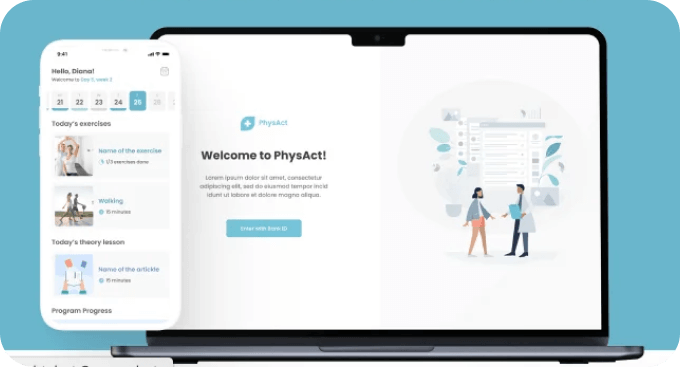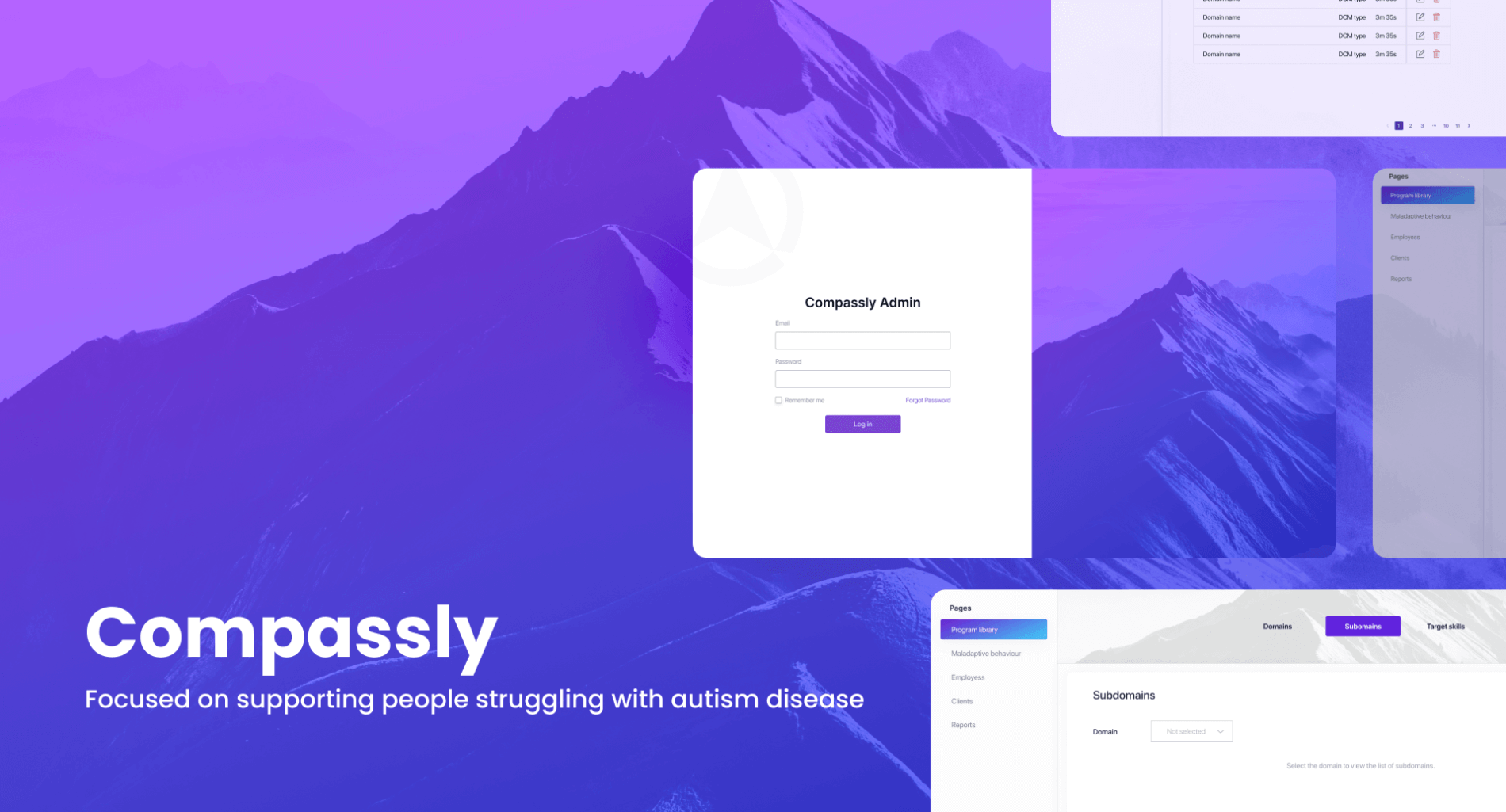Striking a balance between quality patient care and business operations is no easy task in the dynamic and highly regulated healthcare industry. Especially considering that the price of a mistake is extremely high in the medical field. Therefore, it’s vital to find a trusted partner providing healthcare IT consulting services that will guide you through the optimization and technology implementation process.
This article reveals what healthcare IT consulting services entail, how they benefit medical businesses and institutions, types of healthcare consulting, and how to choose the best consulting partner.
Key Statistics
 $53.31 billion
$53.31 billion
The global healthcare IT consulting market size accounted for $53.31 billion in 2023.
 49.0%
49.0%
Strategic management consulting dominated the market with revenue share of 49.0% in 2022.
 $102.46 billion
$102.46 billion
The global healthcare IT consulting market is predicted to reach $102.46 billion by 2027.
What Is Healthcare IT Consulting?

Healthcare IT consulting refers to the process of sharing healthcare technical expertise and guidelines with healthcare institutes and organizations. Healthtech consultants can offer medical app ideas, aid in making technical decisions and adopting new technologies. It also facilitates business growth, enhances productivity, and streamlines the workflow.
Implementing new practices and technical features gives medical institutions a competitive advantage and elevates the quality of care. The facilities can address and solve internal issues and manage revenue cycles.
The healthcare and medical industry is subject to numerous regulations and is closely monitored. Therefore, it’s essential to find trusted healthtech consultants who will advise you and guide you through any significant technology changes.
Who Needs to Hire Healthcare Consultants?
- Hospitals;
- Clinics;
- Public healthcare institutions;
- Nursing homes;
- Health insurance companies;
- Provider offices;
- Pharmaceutical manufacturers;
- Medical equipment manufacturers.
What Does a Technology Consultant Do?
-
Technology Consulting
Healthcare IT consulting companies offer a variety of services and ways in which they can help the operation of healthcare institutions and facilities. They analyze your business, identify areas that need technical assistance, and choose the suitable technology to address the issues.
Consulting companies provide customers with a comprehensive overview of the following:
- Latest healthcare technologies and trends in the market;
- Technologies and features suitable for healthcare business;
- Ways to enhance your business growth and efficiency;
- The cost;
- The time frame to build or deploy a solution.
-
Offering Emerging Technology Services/Solutions
Healthcare technology consulting companies always follow the emerging trends and innovations in the healthtech field, like virtual reality in surgery training. Therefore, they know all the latest technologies, their advantages and disadvantages, and how they can benefit different industries. Consulting companies also advise their customers on suitable technologies and features.
-
Digitizing Healthcare Procedures
Digitalization in healthcare helps facilities enhance productivity, optimize resource utilization, and make procedures more efficient. In this case, consultants and clients discuss:
- Potential suitable solutions for the particular business use case;
- The cost of the solution;
- Solution development and deployment;
- Updates and maintenance.
-
Modernization
Modernization of the existing software is one of the most popular services consulting firms offer, as it allows companies to optimize their operations with minimal investment. Modernization encompasses:
- Integrating advanced technologies into existing software systems;
- Modifying the features of existing systems: adding new ones, eliminating old ones;
- Solution optimization;
- UI/UX design improvement;
- Rebuilding the entire system;
- Upgrading the healthcare software architecture;
- Re-hosting of the existing systems;
- Updating the system to the latest version.
-
Technology Migration
Technology migration means moving your entire system from one platform to another. For example, moving on-site databases to the cloud to increase functionality and cut costs. Companies turn to technology migration for various reasons:
- The existing health tech platform fails to optimize results;
- A large number of bugs;
- The current software presents security concerns.
Consulting companies can assist you in choosing the suitable software, planning the data migration strategy, and streamlining migration processes.
-
Web and Mobile App Development
Healthcare IT consulting companies offer healthcare website development services with customized features like:
- Appointment scheduling;
- E-prescription;
- Remote Patient Monitoring;
- Sharing of reports, lab results, X-rays, and other documents;
- Video and audio calling;
- Chatbots and voice recognition;
- Telemedicine features, etc.
-
Regulatory Compliance
Regulatory compliance is vital for healthcare companies dealing with sensitive patient data. Rules and guidelines such as HIPAA, HITECH, GDPR, HL7, etc., ensure the security and confidentiality of patient data. Those not complying with the industry and legal regulations face legal repercussions and fines. In most countries, such software won’t even be launched.
The most important regulation, especially for US-based healthcare software companies, is the Health Insurance Portability and Accountability Act (HIPAA). It’s most widespread, but the policies vary across countries and have many nuances.
Therefore, you need a trusted and experienced healthcare IT consulting company to guide you through the process. The consultants test security frameworks to ensure proper functioning, enforce safeguards, and provide measures to address system vulnerabilities and guarantee the organization’s security and compliance.
Healthcare IT consulting companies offer a variety of services and ways in which they can help the operation of healthcare institutions and facilities. They analyze your business, identify areas that need technical assistance, and choose the suitable technology to address the issues.
Consulting companies provide customers with a comprehensive overview of the following:
- Latest healthcare technologies and trends in the market;
- Technologies and features suitable for healthcare business;
- Ways to enhance your business growth and efficiency;
- The cost;
- The time frame to build or deploy a solution.
Regulatory compliance
Top 6 Benefits of Healthcare IT Consulting Services
-
Improved Patient Care
The top priority and goal of any medical professional is to provide the best treatment possible to their patients.
Healthcare IT consulting companies deal with addressing technical issues and streamlining operations. They provide tools and technologies to simplify and streamline daily medical check-ups, timely medical records updates, symptom monitoring, staff communication, etc. This means medical professionals can devote much more time to timely and quality patient care.
Healthcare software consultancy offers solutions that automate internal processes, increase the accuracy of lab results and diagnoses, and facilitate informed decision-making.
-
Quick Access
Consulting firms can significantly improve the accessibility of medical services via telemedicine app development. Companies can also integrate new features, like online appointment booking, into the existing system or app. This can significantly benefit people living with hectic schedules or those in remote and rural areas with limited access to healthcare.
Features for online schedule management and 24/7 appointment booking reduce waiting times, increase the productivity of medical professionals, and streamline administrative tasks.
-
Enhanced Tracking and Reporting
Medical professionals need to track the health status of their patients and keep medical records to spot any irregularities and alarming symptoms. However, many facilities use outdated systems or even paper-based records. Healthcare information technology consulting can offer EHR (Electronic Health Records) solutions to make the time-intensive record-keeping process easier and more efficient. Such systems optimize data management and ensure continuity of care.
Like any other company, healthcare businesses and institutions need efficiency assessment to analyze their operation, ensure their growth, and achieve their goals. However, many of them use inconvenient and unsuitable tracking systems or struggle to set up the process for performance reporting. Medical technology consulting companies provide tools for tracking and assessing the performance of healthcare facilities and assist in streamlining such processes.
-
Automated Workflow
Maintaining a smooth, easy, and largely automated workflow is essential in the healthcare industry, where the primary focus of medical professionals is patient treatment and not administrative tasks. Optimizing day-to-day processes results in maximized efficiency and productivity.
Healthcare technology consultants can help establish a well-functioning workflow with the help of various software solutions and technologies, such as data integration in healthcare. Workflow optimization can also involve automating manual processes, like data collection and comparison, crafting staff training programs, improving employee communication, etc.
-
Improved Patient Record Management
Healthcare facilities deal with a lot of paperwork daily, including patient medical records, prescriptions, forms, insurance records, lab results, X-rays, etc. The process is quite time-intensive and tedious, not to mention that many facilities still rely on paper-based documents.
Healthcare software development companies make the data management process much easier and more convenient by building EHR, E-prescription, and medical imaging software. These solutions allow medical professionals to spend minimum time on data management and maximum time on patient care.
-
Enhanced Productivity and Efficiency
The constantly growing number of patients and medical documents affects the efficiency and productivity of healthcare organizations.
Healthcare IT consultants improve productivity in numerous ways:
- Audit your current operations;
- Determine improvement areas and ways to maximize productivity;
- Provide valuable insights about use cases of innovative technical solutions;
- Update communication channels and tools within the organization;
- Organize staff training regarding the organizational changes.

How to Find a Healthcare Consulting Company?
Step 1: Market Research
Research the market using the internet and specialized websites, like GoodFirms and Clutch. Look at companies’ profiles and websites and explore their services and portfolios. Find verified reviews and feedback from previous customers. Consulting your partners and fellow firms in the industry can also be helpful, as they can give you valuable suggestions and share their experiences.
Shortlist potential candidates who seem trustworthy and experienced.
Step 2: Technology-Wise Research
Study the shortlisted companies from a technology perspective, that is:
- The tech stack they use;
- The healthcare technologies and features they work with;
- The UI/UX design of their previous projects;
- Whether they are HIPAA consulting firms;
- Their project management techniques.
Learning about the various technical aspects of consulting companies will help you find the ones that best suit your organization’s needs.
Step 3: Communication
Get in touch with the healthcare consulting companies from the shortlist that seem like a good fit for you. Discuss all the details regarding your business or project, that is, its scope, your requirements, the goals you wish to achieve, and your budget.
The communication with the company’s representatives will tell you a lot about their values, time frames, communication skills, etc.
Interexy’s Experience in Healthcare IT Consulting
Crumb is an innovative fitness mobile app designed to incentivize healthy lifestyles by rewarding users with discounts and benefits from local businesses for completing fitness activities. By integrating seamlessly with Apple Health and Google Health, Crumb personalizes the user experience, while supporting local businesses.
Interexy’s healthcare IT consulting expertise was pivotal in shaping a secure, functional, and engaging product that benefits users and businesses alike. We transitioned the project from a lagging hybrid build to robust native iOS and Android applications, enabling flawless Health App integration. Our team tackled UX challenges, implemented gamification elements, and developed features like referral systems and in-app wallets, ensuring high user retention and engagement.

How Can Interexy Help?
Interexy has extensive expertise in healthcare app development and healthcare IT consulting services. Our top-notch specialists have years of experience in the healthcare domain and the technical skills needed to meet your business needs and goals.
Interexy specializes in developing mHealth solutions and fitness and wellness apps, integrating telemedicine, remote patient monitoring, EHR/EMR, and IoMT features. Our team is experienced in crafting healthcare software compliant with key industry regulatory requirements, such as HL7, HIPAA, and XDS/XDS-I.
Maximize your potential with top-notch healthcare solutions tailored to your business needs.
Book a call with our expertsFinal Thoughts
Turning to healthcare technology consulting services is the best way for healthcare organizations to optimize their workflow, enhance productivity, automate day-to-day operations, and facilitate growth.
A reliable and skilled consulting company will assist you in providing quality care while complying with the required regulations. Medical software consultants will ensure you make smart investments in digitization and provide the best tools and strategies to thrive.

FAQs About Healthcare IT Consulting
-
What is healthcare IT consulting?
Companies providing healthtech technology consulting services share technical expertise and advice with medical facilities and organizations. Healthcare consulting facilitates smooth digital transformation and technology implementation. Consulting services help streamline operations, improve productivity, and provide better patient care.
-
What do healthcare IT consultants do?
Healthcare IT consultants specialize in optimizing technology solutions to enhance the efficiency, security, and delivery of healthcare services. They analyze current systems, recommend upgrades, and implement innovative technologies tailored to an organization’s specific needs. With expertise in areas such as cloud-based solutions, data security, system integration, and regulatory compliance like HIPAA, healthcare IT consulting firms help healthcare organizations streamline operations, improve productivity, and handle complex technology implementations. This comprehensive support ensures smooth digital transformation and better overall service quality.
-
What are the benefits of healthcare IT consulting?
Healthcare IT consulting offers numerous advantages, including the detection of flaws in existing systems, improved patient care, quick access to information, enhanced management of records, and streamlined communication. Healthcare technology consultants help organizations digitize procedures, modernize systems, and integrate advanced technologies to meet industry standards and improve overall efficiency.
-
What are the key challenges healthcare IT consulting addresses?
Healthcare IT consulting helps organizations tackle challenges like outdated systems, data security vulnerabilities, compliance with regulations such as HIPAA, and the integration of new technologies. Consultants identify inefficiencies, implement advanced solutions, and ensure seamless system interoperability. By addressing these challenges, healthcare technology consulting enhances operational efficiency, data privacy, and patient care delivery.
-
How to choose the best healthcare IT consulting firms?
Conduct proper market research and explore the healthcare software consulting companies’ profiles, services, and portfolios. Pay attention to feedback and verified reviews of previous clients. Shortlist the firms that suit your needs and study them from a technology perspective. Then, contact the selected companies to discuss your ideas, goals, and possible future cooperation. Negotiate the cost and time frame. Choose the firm that aligns with your goals, values, and requirements.







